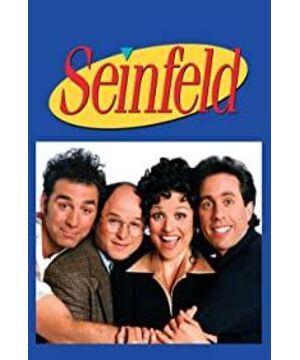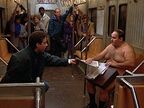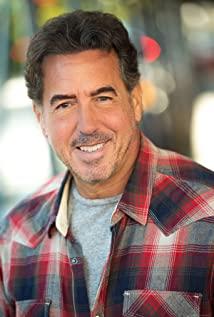Previously I had no intention of writing any passage on Seinfeld until I was astonished to know it ranked second to none among the 50 Greatest Shows of All Time by TV Guide. This might lie in its pursuance with the postmodern interpretation. Jerry Seinfeld and Larry David pitched Seinfeld as a'show about nothing', similar to the self-parodying'show within a show' of Season 4 episodes'The Pilot, Part 1'and'Part 2'. Seinfeld stood out from the typical family- or coworker- driven TV sitcoms of its time. None of the principal Seinfeld characters were related by blood or worked together. The episodes of most sitcoms revolve around a central theme or contrived comic situations, whereas most episodes of Seinfeld focused on the minutiae of daily life, such as waiting in line at the movies, going out for dinner, buying a suit,and coping with the petty injustices of life. Some viewers hold the belief that the world view presented in Seinfeld was somewhat consistent with the philosophy of nihilism, the view that life is pointless.
In most Seinfeld episodes, one story thread was presented at the beginning, involving the characters in separate and unrelated situations. Rapid scene-shifts between story lines moved the story forward. By Season 4, the episodes ended by having all of the separate story lines converge----often unexpectedly. Despite the separate plot strands, the narratives revealed'consistent efforts to maintain the intimacy' between the small cast of characters.
The show kept a strong sense of continuity----characters and plots from past episodes were frequently referenced or expanded upon. Occasionally, story arcs would span multiple episodes and even entire seasons. Larry David, the show's head writer and executive producer for the first seven seasons, was praised for keeping a close eye on minor details and making sure the main characters' lives remained consistent and believable. The show stood apart from other sitcoms of the time for not placing a shred of importance on the characters learning moral lessons . It was often said that the mantra of the show's producers was:'No hugging, no learning.' In effect, the characters were often morally indifferent or callous. Take a look at'the Bubble Boy' episode,when Elaine and the narrator took pieces of napkins to wipe off their tears while Jerry used one to clean down his lips. Even Susan's death in the series elicited no genuine emotions from anyone in the show.
The above-mentioned 2 features were best reflected in the 1-hour retrospective clip show and 75-minute series finale in which Jerry, George, Elaine and Kramer were prosecuted for violating a'Good Samaritan law' and were sentenced to jail for one year . All the victims in the last 9 seasons appeared to accuse the 4 common people of their moral unawareness. Such ending, just like Mozart's Jupiter Symphony IV finale, was much longer than the previous episodes, yet bewitching.
View more about Seinfeld reviews











